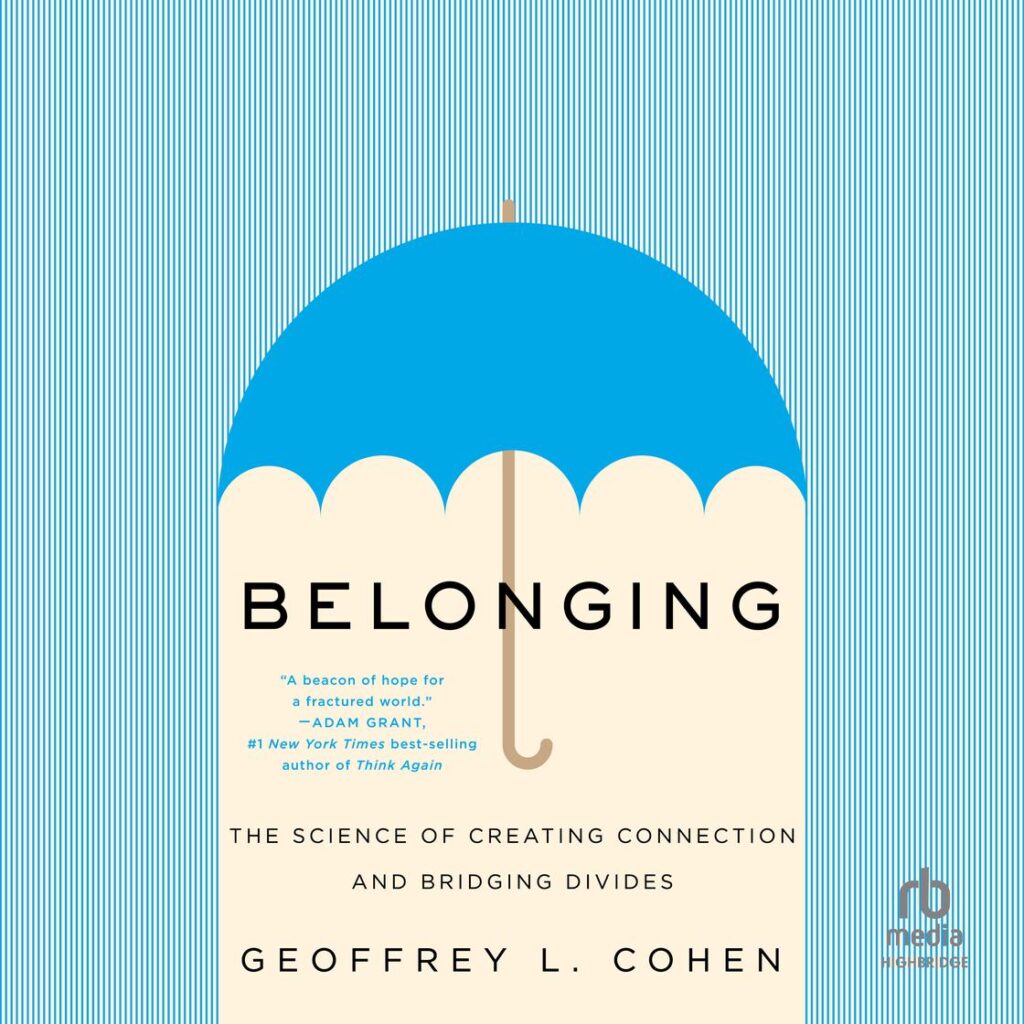Among the books I read while conducting research for an article on loneliness was Stanford University psychology and business professor Geoffrey L. Cohen’s intriguing Belonging: The Science of Creating Connection and Bridging Divides (Norton, $19.95). Admirable not only for the depth of investigation applied to the core forces fueling human desire, dependency, and physical and mental wellbeing related to our communal existence or the lack thereof, Belonging offers abundance.
Included in its 448 pages are real-life examples, clinical studies, anecdotal and personal accounts, and a vast—sometimes overwhelming—trove of evidence drawn from decades of large and small scale social psychology research. The devastating impacts of gender bias, racism, classicism, isolation, and “othering” are resoundingly proven; leading to the sole suggestion that in some cases, less could be more.
Thankfully, while requiring some patience, Belonging does not drag readers down a dead-end road or abandon them at the end with either feel-better Bandaids or a depressive ditch a la “Good luck clawing your way out of that hole on your own!”

Instead, Cohen presents familiar or easy-to-remember trade terminology (“Fundamental Attribution Error,” “wise criticism,” and more) that explain the evolutionary urge human beings have to belong. Zippy phrases include “situation-crafting,” a description of sexism as “proverbial smoke from a hidden fire,” and a “turbocharged” intervention method organized around popular people to improve teamwork and social acceptance among peers and colleagues in school and work communities. Cohen’s occasionally lively language adds necessary energy to the book’s beefier, slower-to-digest research and data.
Early chapters detail the evolutionary reasons—some of them even harmful to self or society—behind people adhering to group beliefs in order to prevent becoming outcasts from a chosen tribe. Being a member of a group is essential to identity and importantly, feelings of isolation and exposure to chronic social adversity lead to destructive physical and mental health conditions.
Racism and sexism, from “invisible” shame-inducing comments passed directly or through social media to outright violence or deliberate acts are infinitely harmful, as indicated by studies conducted by Cohen and numerous scientist and researchers. Compounding the tragedy, it is not just the immediate target of bias who is damaged; ripples extend to multiple generations of people within families, communities, and nations.
Moving into sections that offer both hope and evidence-backed solutions, Cohen emphasizes the importance of mentors and role models; a “fast friends procedure” that creates immediate bonds of various degrees of intimacy; creating situations deliberately to boost respect and reduce stereotyping (situation-crafting); and law enforcement that encourages police officers to increase “psychological friction” by pausing, reflecting, and looking again between thoughts and actions.
Cohen’s interest in education shows in a chapter about wise criticism used to stimulate a “belonging effect” that is especially effective with teens. For adult workplaces applications, he suggests humane policing and successful DEI programs that follow “new scripts” of situation-crafting philosophies: solidarity, dignity, humanity, and fairness.
The book’s final chapter “Belonging and Our Politics” offers a trilogy of solutions: nine concise “dos and don’ts” especially designed for dialoguing in-person or online with political opponents and 10 key steps based on an array of science-backed practices and motivational activities that lead to powerful solutions and about which he writes are “ways of thinking and behaving that support belonging.” Here too are eight timeless core practices for building belonging into daily life. Belonging is a worthwhile read, both for its extensive depth and that last chapter alone.
Belonging: The Science of Creating Connection and Bridging Divides is out now, more info more info here.






